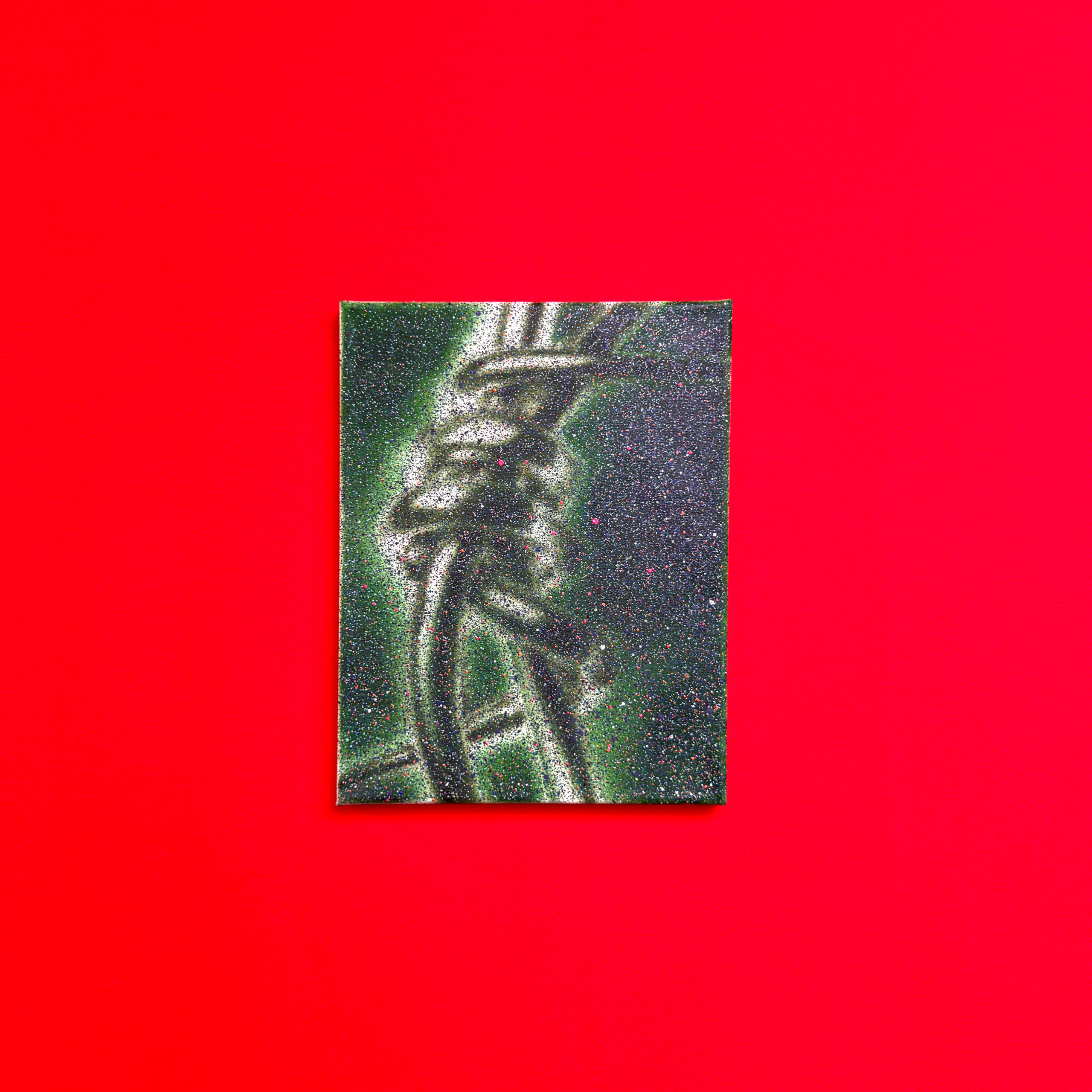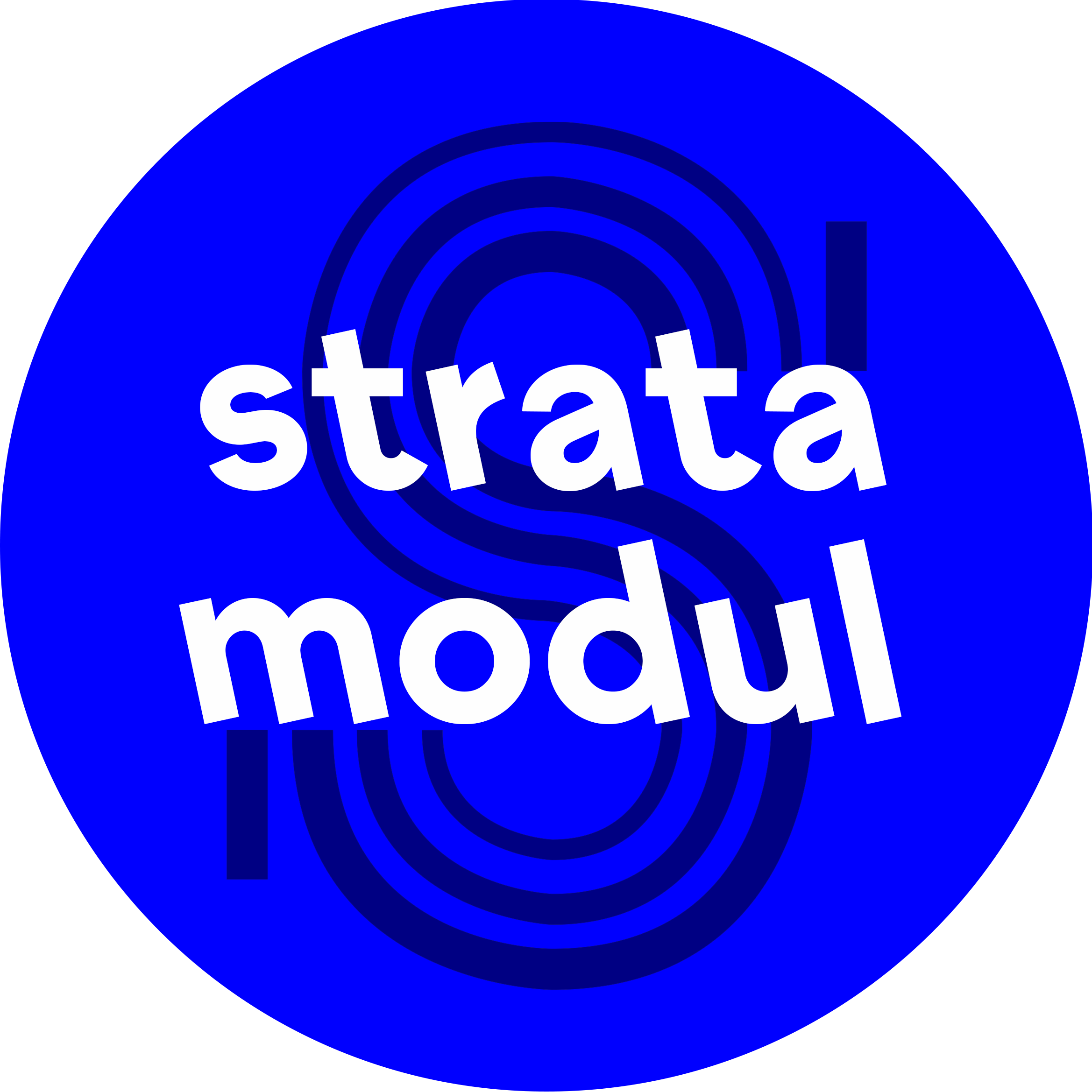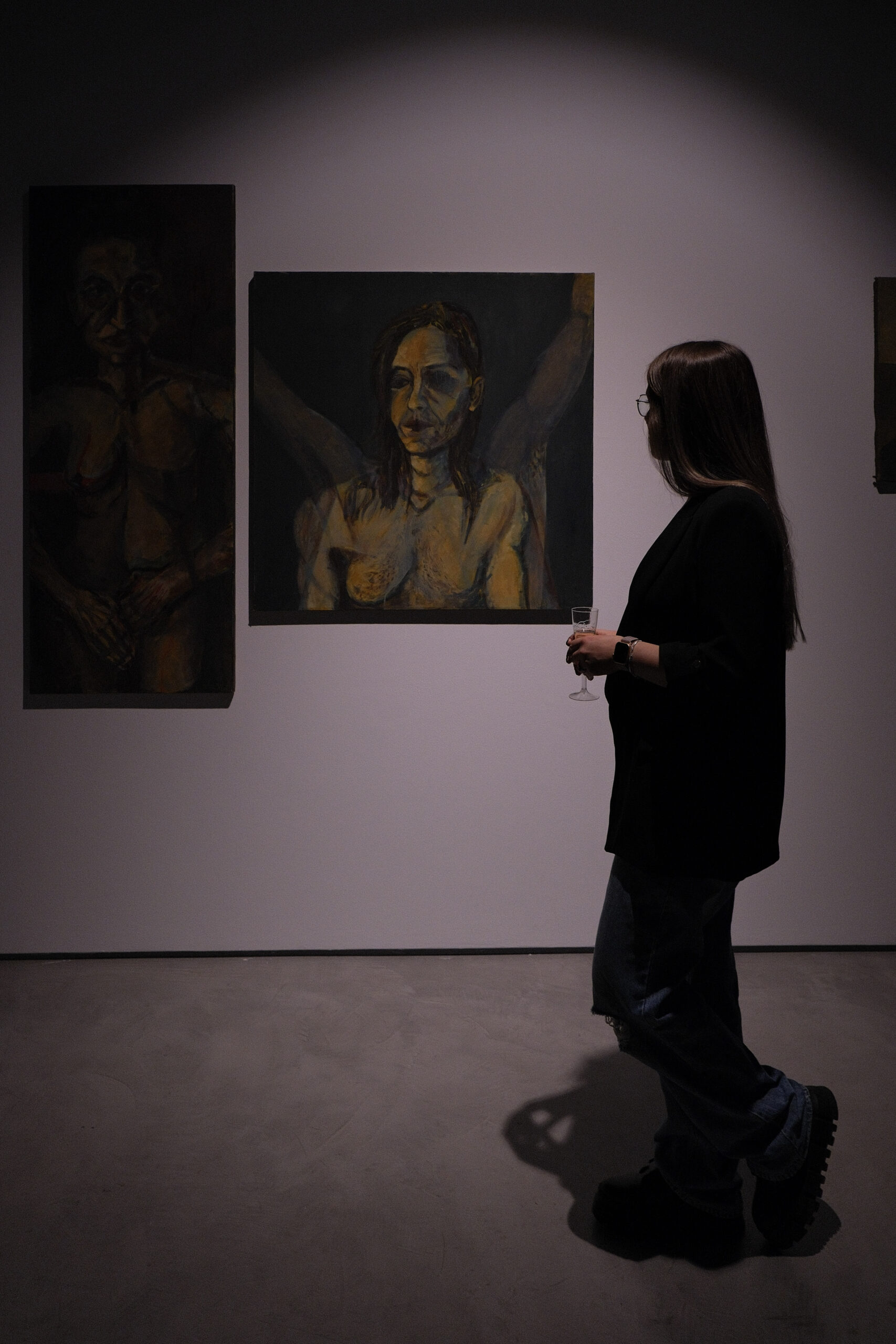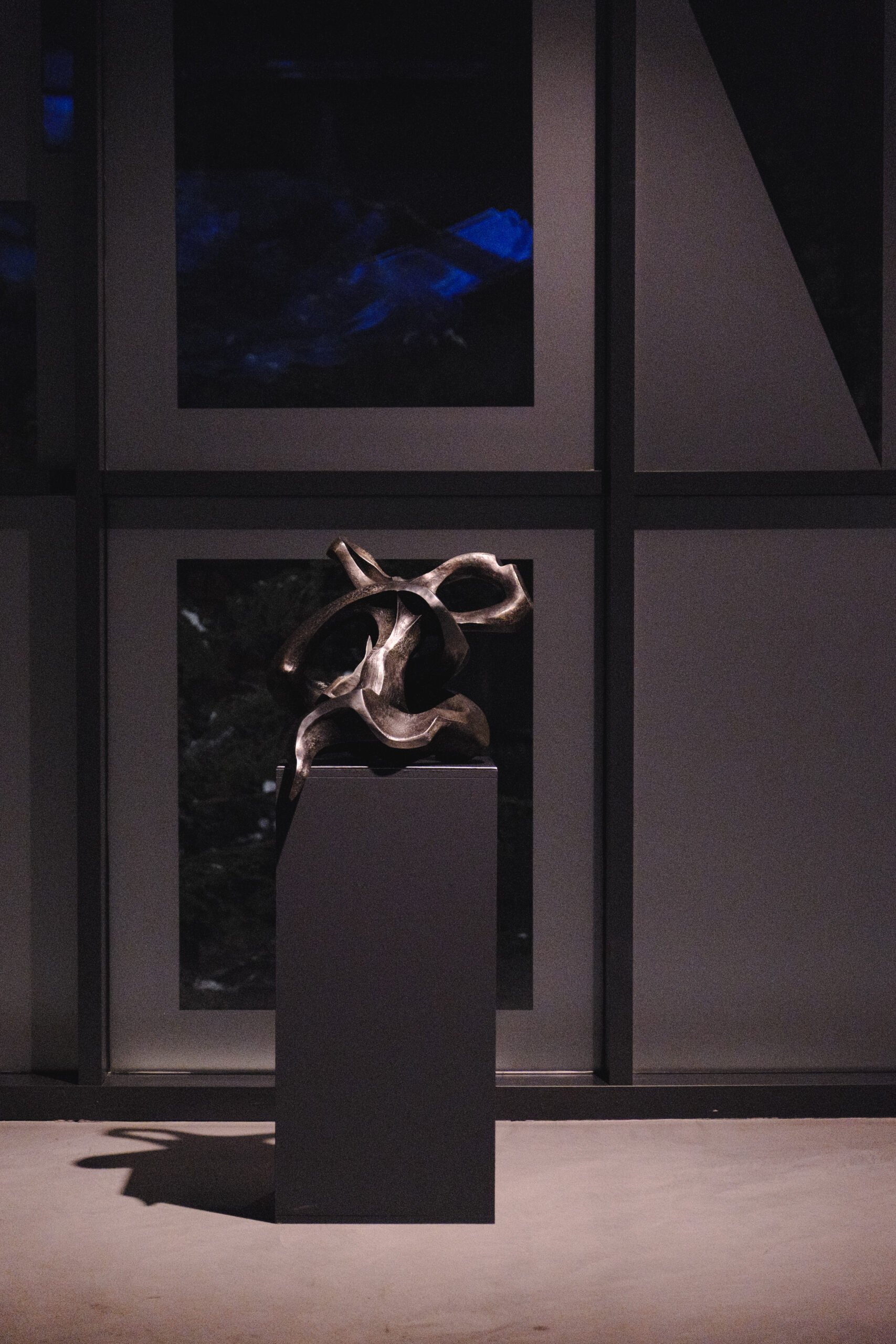The exhibition we won’t return to normality, because normality was the problem, hosted by Strata Gallery between 20.02.-30.03.2025 challenges our misplaced desire to go back to what was once considered normal, seeing as pre-pandemic times are what we have regarded during the crisis as an ideal to which we must return. During the years we spent quarantined and under the auspices of a disease that we couldn’t truly comprehend at the time, we slowly came to realize the many shortcomings of the medical system, the unequal division of wealth and the inequality which permeates us to a deeper level than we might at first have been aware of.
These shortcomings, however, weren’t brought on by the pandemic but simply unveiled. Yet, we shouted and pleaded for a return to what we had before, we clung to a past which was in many ways flawed. This exhibition proposes that what was normal is not something we want back. Through the works of Raul Bratu, Daniel Roșca, Arantxa Etcheverria, Bogdan Matei and Hortensia Mi Kafchin (curated by Eugen Rădescu and Jarvis AI – developed by DerAffe Vienna) we begin to question our placid acceptance of a normality that has been the cause of a social imbalance of the proportions that have caused the French revolution. The use of an AI curator in itself challenges our views, pinning us against our new found fear of technology and science – visible during the pandemic and visible now, during the rise of AI use in the cultural field.
The very human longing for what is familiar must not go unquestioned, especially in the age of political turmoil that we are traversing. The artworks of this exhibition manage to delve into the collective psyche and to remind us that in order for progress to transpire, we must always move forward.
Hortensia Mi Kafchin manages to assemble through her paintings a cast of recent cataclysms, creating a clever tapestry of a very questionable normality. Featuring war tanks and text message bubbles, she integrates pop culture into the more and more present violent conflicts (a message that is specifically important to us, considering the Russian invasion ongoing at our northern border). The painting (Conversație de la marginea universului) draws attention to the distance between us and the wars we feel we know so much about, making the viewer wonder whether his interaction with conflict through social media is in any way telling of the violent truth. Raul Bratu’s sculptures push for deep introspection on ourselves and our society by removing objects from their contexts and presenting them in a different space, sometimes enlarged and in interaction with everyday materials (as is the case with Nail).
Bogdan Matei’s multimedia installation Scents of Nothingness, featuring projections with digitalized images of swings (perhaps hinting at the emptiness of playgrounds and public squares during the CORONA-19 pandemic), trees and flowers, creates a multisensorial experience that breaches the limits between technology, nature and the human touch present on both. Arantxa Etcheverria draws inspiration from the modernist building designed by Marcel Iancu in which she works and from the city itself, which in the context of the exhibition could lure us to the stillness of our cities during the pandemic. By capturing door frames and windows and turning them into art objects, the artist encapsulates Bucharest in a way I believe many of us wanted to during our time of isolation. Daniel Roșca’s works speak of human connection and despair, of the complexity that is to be found in our relationships. The entire exhibition calls us to see how we have changed, how much technology and human nature have become interlinked and how in order to reach actual progress we have to continue looking forward rather than wishing for a distant past.
this
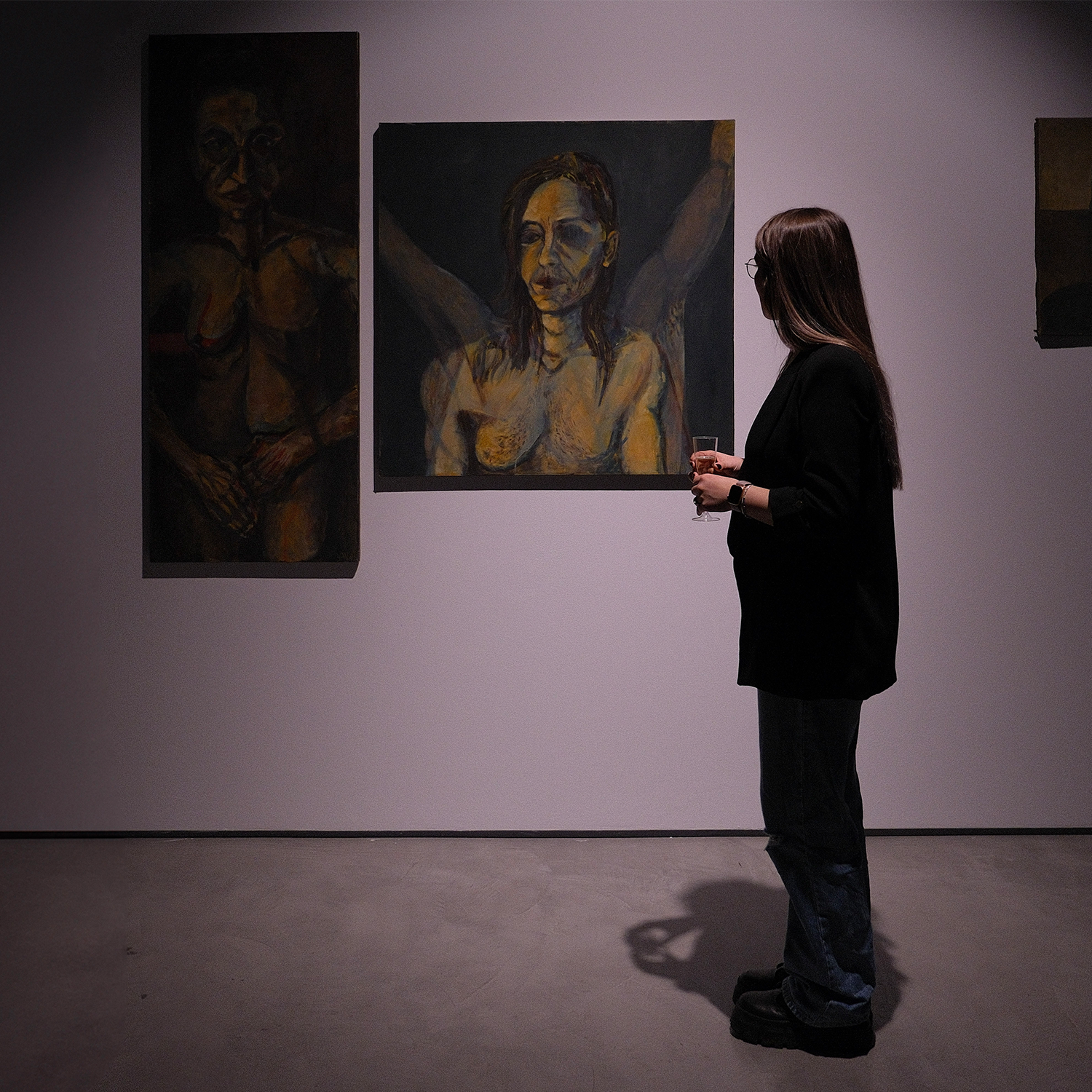
↳ Details
↳ Tags
and that
